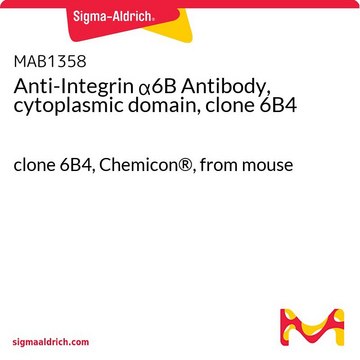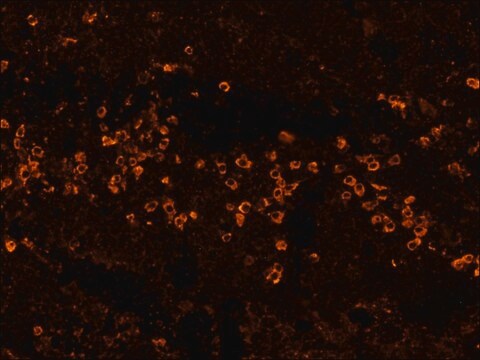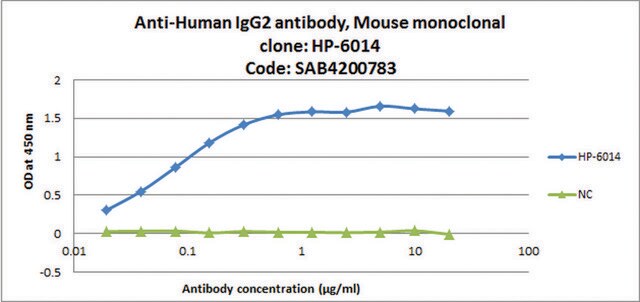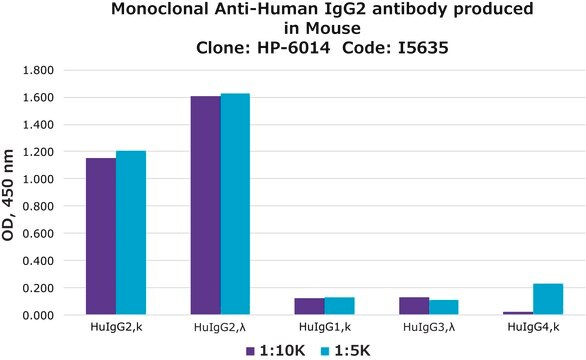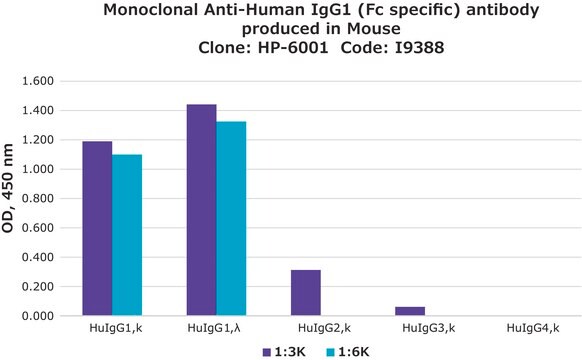B3523
Anti-Human IgG3−Biotin antibody, Mouse monoclonal
clone HP-6050, purified from hybridoma cell culture
Synonyme(s) :
Monoclonal Anti-Human IgG3
About This Item
Produits recommandés
Source biologique
mouse
Niveau de qualité
Conjugué
biotin conjugate
Forme d'anticorps
purified from hybridoma cell culture
Type de produit anticorps
secondary antibodies
Clone
HP-6050, monoclonal
Forme
buffered aqueous solution
Espèces réactives
human
Technique(s)
direct ELISA: 1:40,000
Isotype
IgG1
Conditions d'expédition
dry ice
Température de stockage
−20°C
Modification post-traductionnelle de la cible
unmodified
Vous recherchez des produits similaires ? Visite Guide de comparaison des produits
Description générale
Spécificité
Immunogène
Application
Actions biochimiques/physiologiques
Forme physique
Stockage et stabilité
Clause de non-responsabilité
Vous ne trouvez pas le bon produit ?
Essayez notre Outil de sélection de produits.
Code de la classe de stockage
10 - Combustible liquids
Classe de danger pour l'eau (WGK)
nwg
Point d'éclair (°F)
Not applicable
Point d'éclair (°C)
Not applicable
Faites votre choix parmi les versions les plus récentes :
Certificats d'analyse (COA)
Vous ne trouvez pas la bonne version ?
Si vous avez besoin d'une version particulière, vous pouvez rechercher un certificat spécifique par le numéro de lot.
Déjà en possession de ce produit ?
Retrouvez la documentation relative aux produits que vous avez récemment achetés dans la Bibliothèque de documents.
Les clients ont également consulté
Articles
Antibody-based serology tests are useful in identifying subjects with an adaptive immune response to the SARS-CoV-2 virus. Anti-human immunoglobulin antibodies allow for quick and simple, yet reliable assays with easy readouts and can also be adapted for high-throughput screening.
Notre équipe de scientifiques dispose d'une expérience dans tous les secteurs de la recherche, notamment en sciences de la vie, science des matériaux, synthèse chimique, chromatographie, analyse et dans de nombreux autres domaines..
Contacter notre Service technique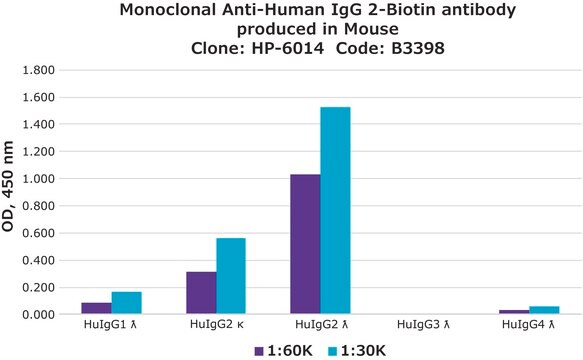
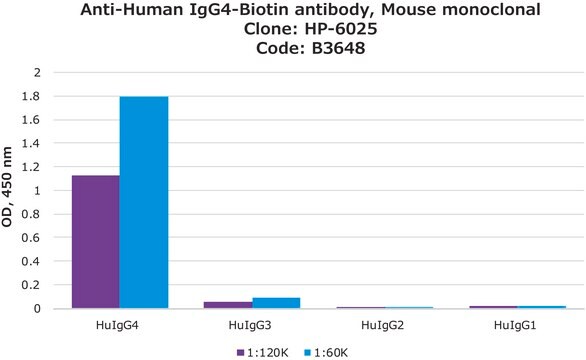
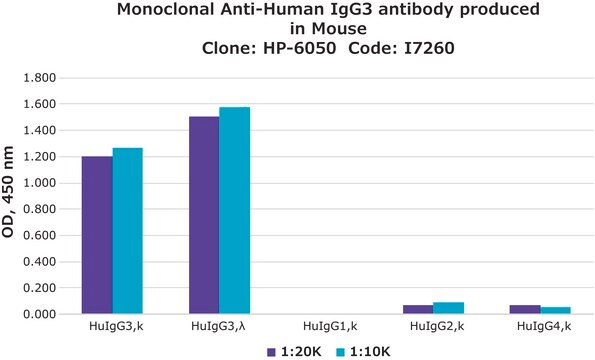
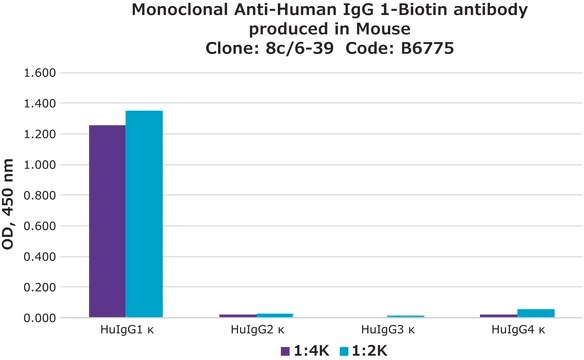
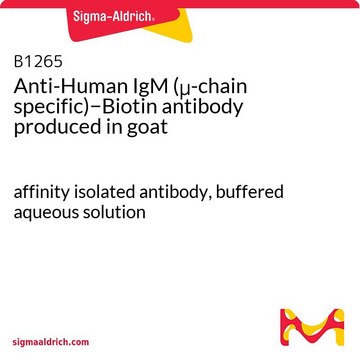
![N-(4-Bromophenyl)-3-[[(4-bromophenyl)amino]sulfonyl]benzamide ≥98% (HPLC), solid](/deepweb/assets/sigmaaldrich/product/structures/120/254/f9829d51-31a0-469a-ab52-5e2f49b48d81/640/f9829d51-31a0-469a-ab52-5e2f49b48d81.png)
